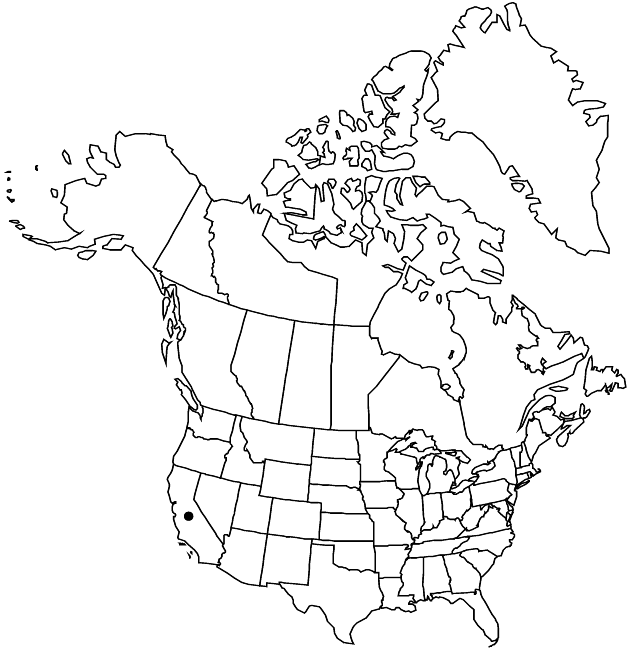Layia pentachaeta
in War Department [U.S.], Pacif. Railr. Rep. 4(5): 108. 1857.
Plants 5–100 cm (self-incompatible); glandular, strongly lemon or acrid-scented. Stems not purple-streaked. Leaf-blades oblanceolate or lanceolate to linear, 6–110 mm, margins (basal leaves) 1–2-pinnatifid. Involucres ± hemispheric, 5–12 × 2–12+ mm. Phyllaries 4–14, apices shorter or longer than folded bases. Paleae in 1 series between ray and disc-florets. Ray-florets 3–14; laminae yellow or white, 3–26 mm. Disc-florets 7–120+; corollas 3–6 mm; anthers yellow to brownish. Ray cypselae glabrous. Disc pappi 0 or of 1–22 whitish, ± equal, setiform scales 1.5–3.5 mm, each proximally plumose, seldom adaxially woolly.
Discussion
Subspecies 2 (2 in the flora).
Molecular phylogenetic data have indicated that Layia pentachaeta is closely related to L. glandulosa and L. discoidea (B. G. Baldwin, unpubl.). Distributions of L. pentachaeta and L. glandulosa overlap broadly; the two species occur in different habitats and natural hybridization has been rarely detected (first-generation hybrids are of low to moderate fertility; J. Clausen 1951).
Selected References
None.
Key
| 1 | Ray corollas yellow | Layia pentachaeta subsp. pentachaeta |
| 1 | Ray corollas white | Layia pentachaeta subsp. albida |
